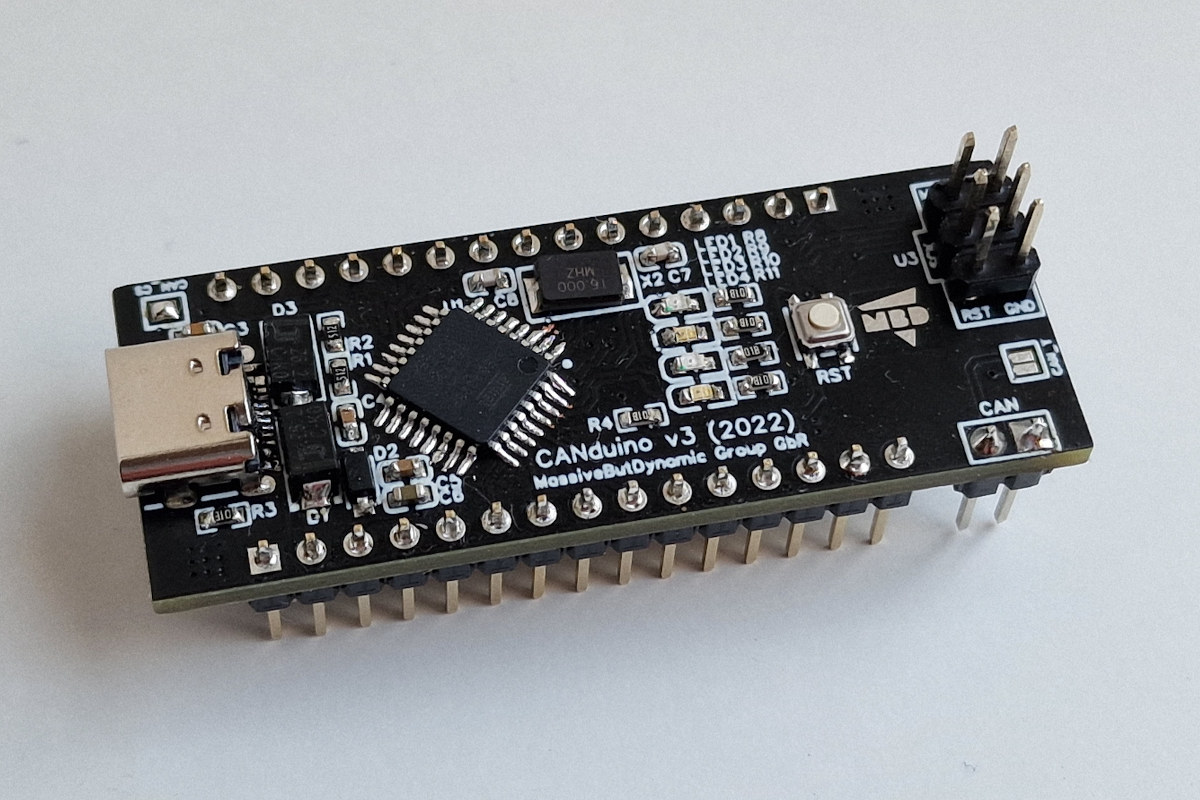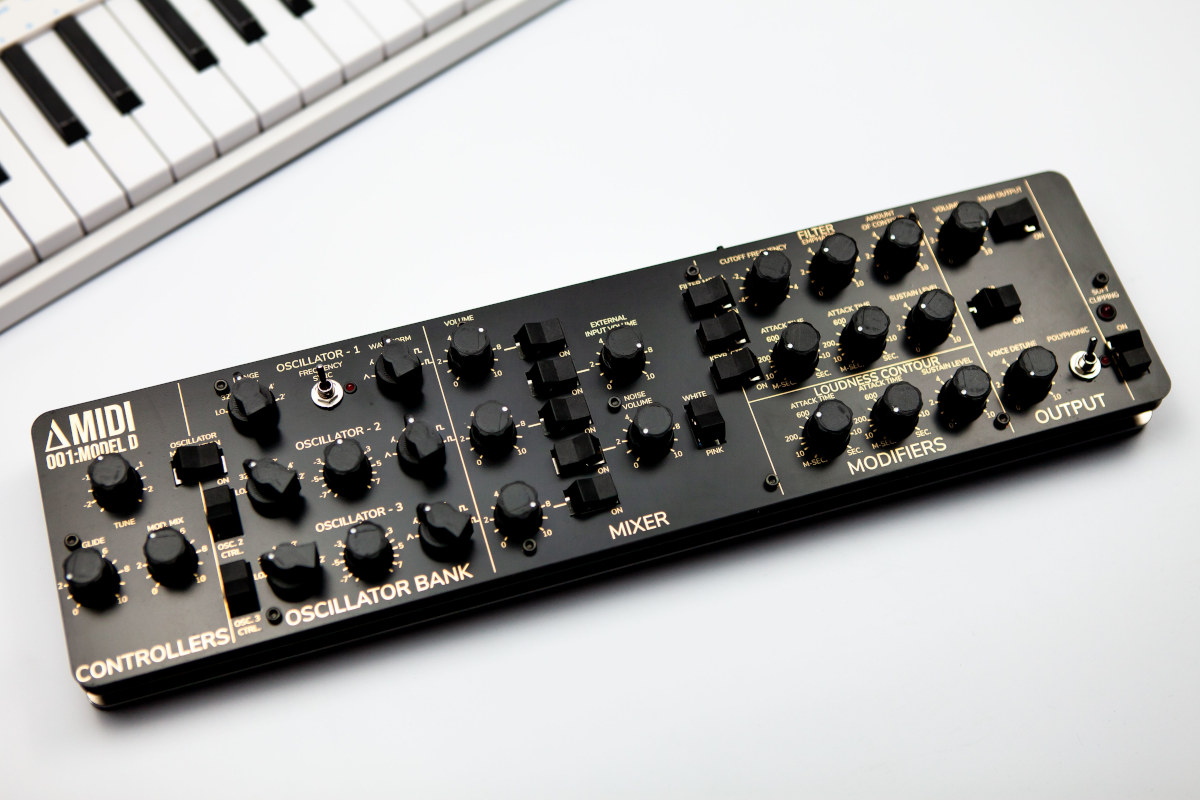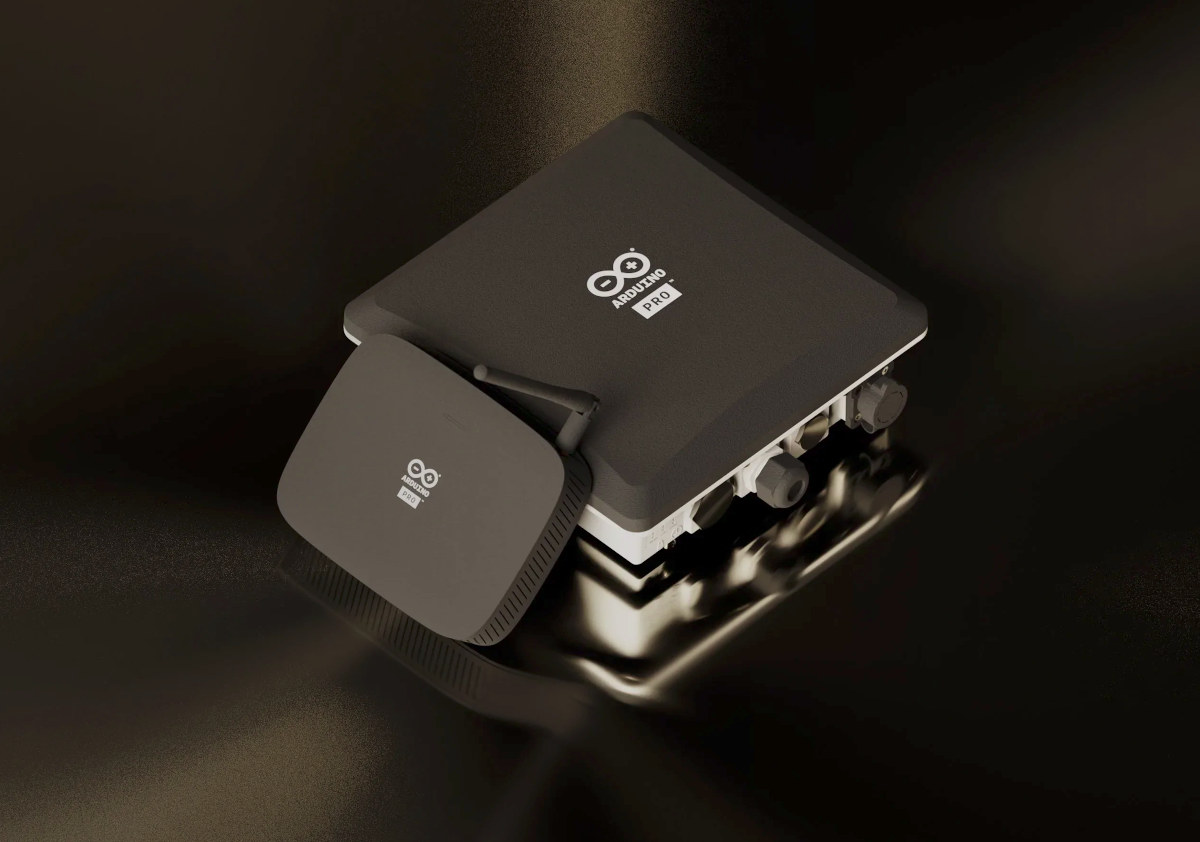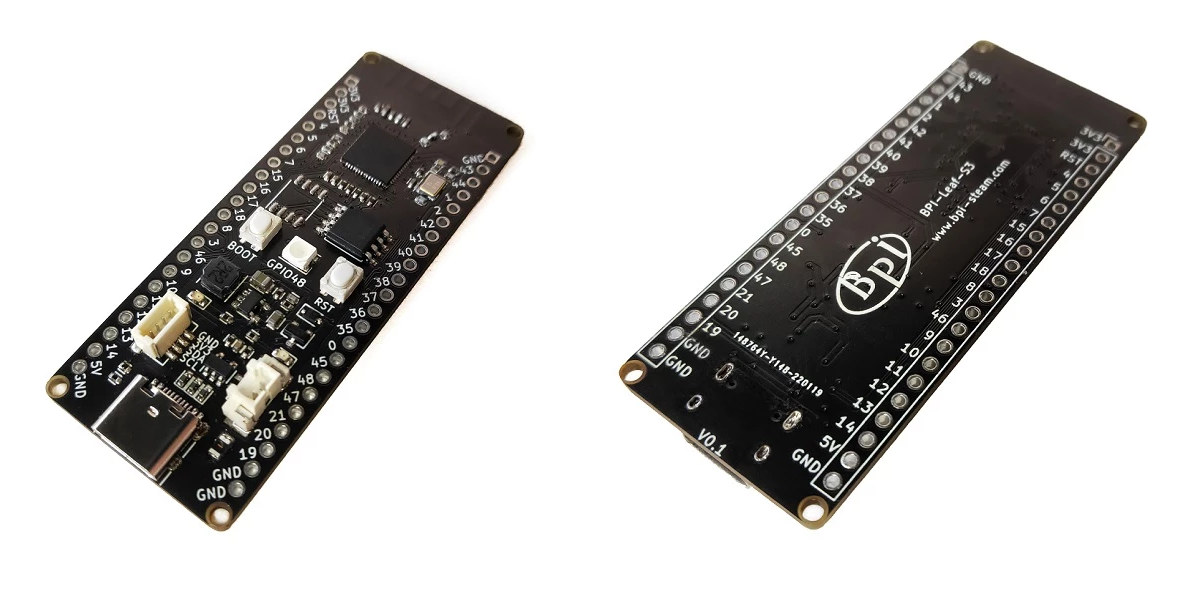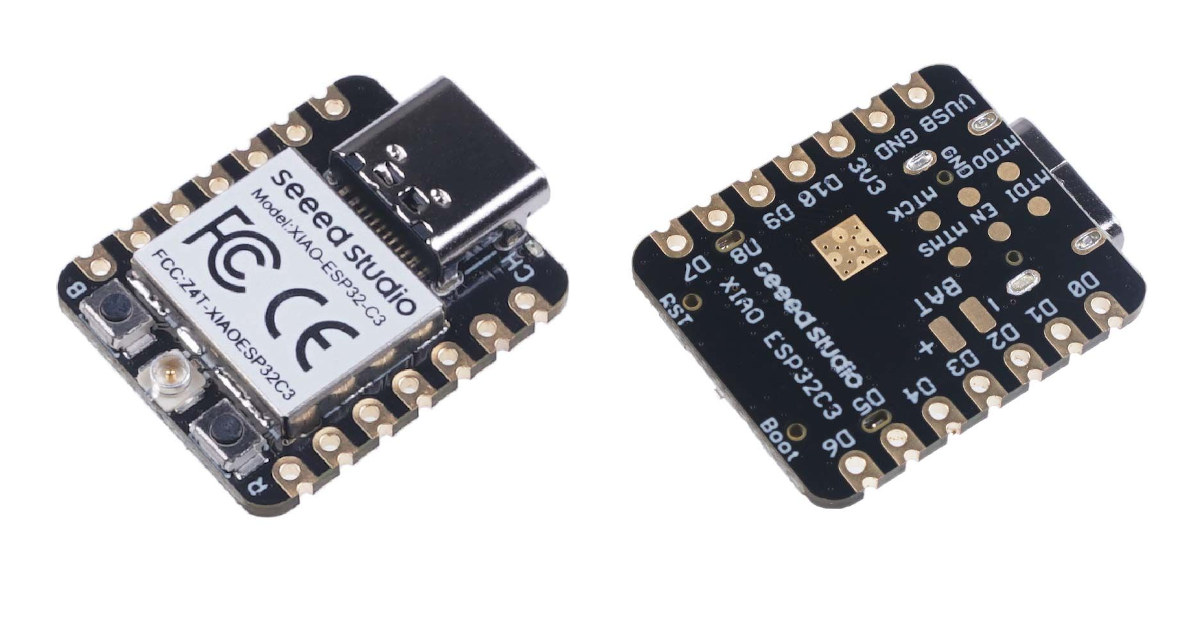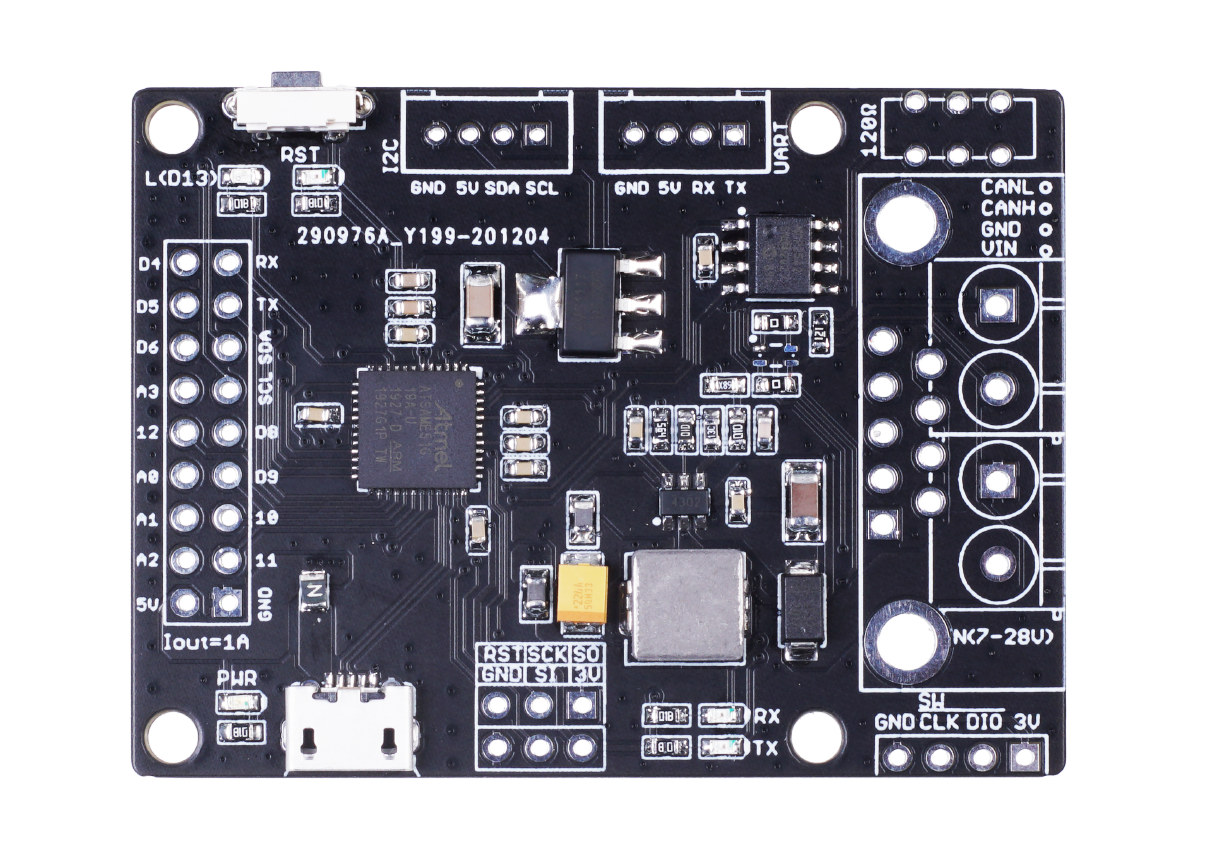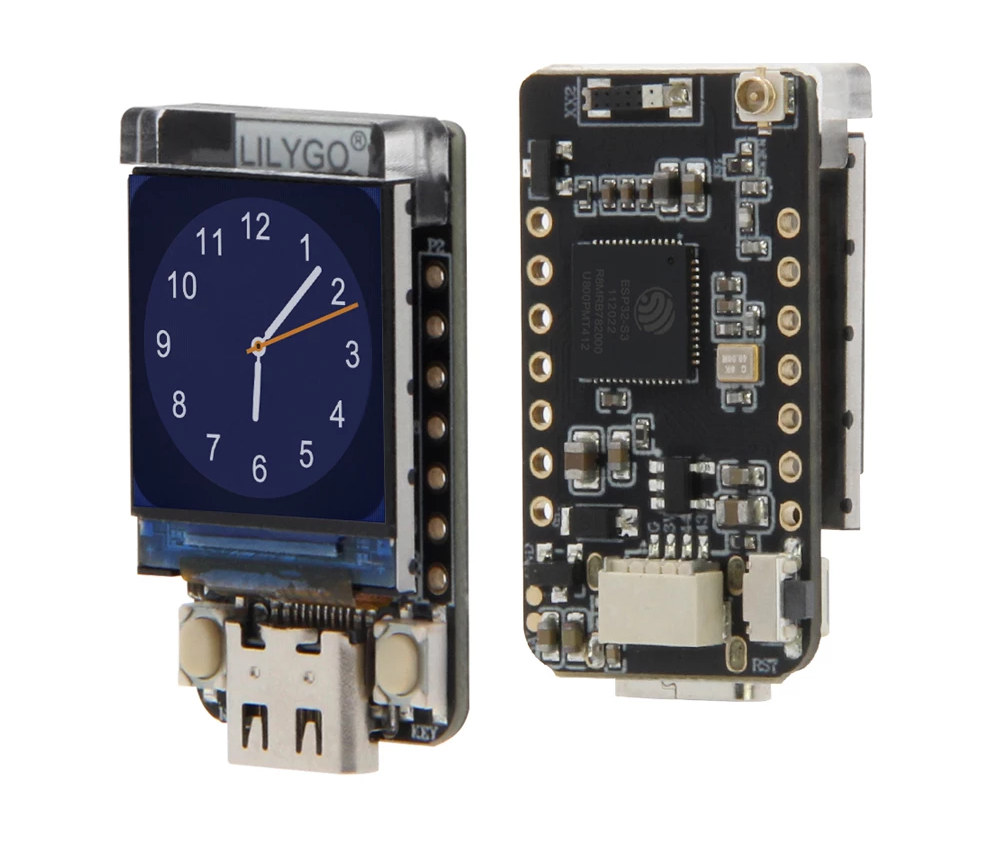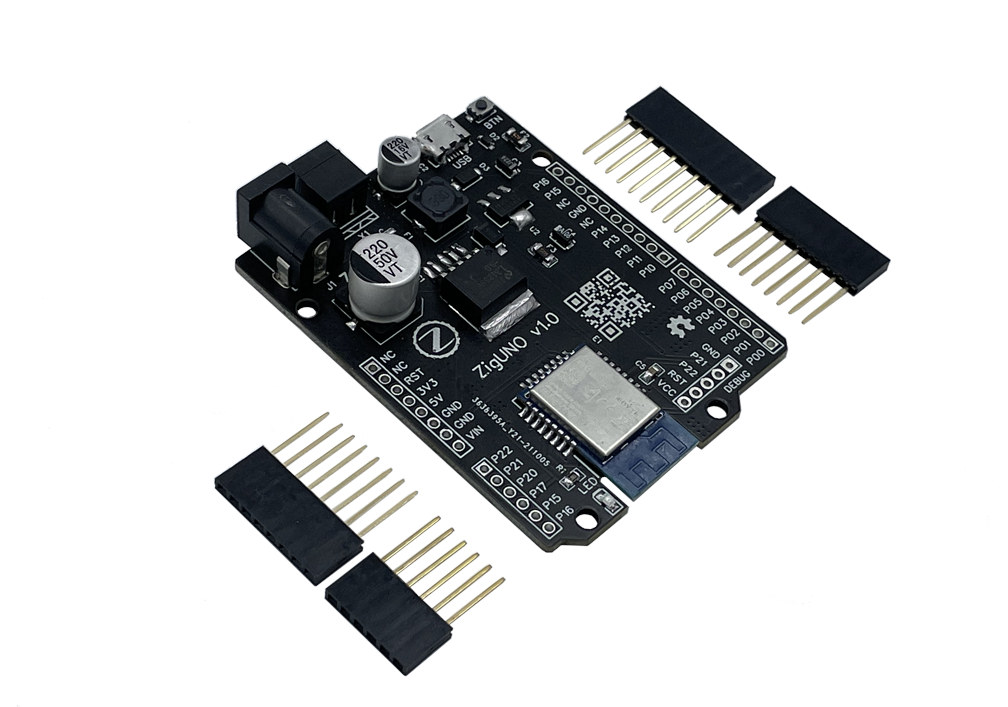CANduino v3 is the third revision of MassiveButDynamic’s CAN bus board with Arduino Nano form factor based on Microchip ATmega168PA 8-bit AVR microcontroller, Microchip MCP2515 CAN controller with an SPI interface, and Microchip MCP2551 CAN transceiver suitable for 12V and 24V systems. The CANDuino v3 board is now slightly narrower in order to give access to two rows on each side when installed on a breadboard, comes with a USB Type-C port to reduce the number of cables needed, and the CAN bus function can be deactivated via a jumper in order to use the CANduino as a normal Arduino Nano. CANDuino v3 specifications: MCU – Microchip ATmega168PA 8-bit AVR microcontroller @ up to 16 MHz with 16KB flash, 512 bytes EEPROM, 1 KB SRAM CAN Bus CAN L/H header and CAN bus termination Microchip MCP2515 CAN controller connected to the AVR microcontroller over SPI. Supports CAN V2.0B at 1 […]
Arduino-based MIDI controller brings Minimoog Model D synthesizer back to life (Crowdfunding)
ΔMIDI 001:model D is an Arduino-based MIDI controller inspired by the Minimoog Model D synthesizer first introduced in the early 1970’s, but not in production anymore. The MIDI controller is compatible with VST (Virtual Studio Technology) plugins designed for the Minimoog synthesizer, DAWs (Digital Audio Workstation), and as an open-source, can be directly modified or tweaked by its user. ΔMIDI 001:model D key features and specifications: MCU – Arduino-compatible ATMega microcontroller Controls 21x analog potentiometers 6x 6-stage knobs 15x toggle switches 2x lever switches 3x LED indicators 44x physical controls in total. Sync button for instant settings transfer. Map button for changing MIDI mapping on the fly. Class-compliant MIDI-USB protocol implementation Eurorack-compatible design Dimensions – 425 x 110 x 48 mm Weight – 1100 grams Materials – Three layers of fiberglass reinforced laminate with an additional layer of sheet aluminum. All CNC-machined. The 001:model D MIDI controller has been tested […]
Arduino “launches” WisGate Edge LoRaWAN gateways in collaboration with RAKwireless
Arduino was already involved in LoRaWAN with its MKR WAN 1300 board, but now the company has started offering Arduino-branded Wisgate Edge Pro and Wisgate Edge Lite 2 LoRaWAN gateways for respectively outdoor and indoor environments as part of the Arduino Pro family. If the names of the gateways seem familiar, it’s because Arduino collaborated with Rakwireless, and is simply using their existing LoRaWAN gateways. As I understand it RAKwireless will provide the hardware and technical support, while Arduino will sell the gateways and other LoRaWAN hardware through its existing customer base, more acting as a distributor. Arduino WisGate Edge Lite 2 indoor gateway specifications: SoC – MediaTek MT7628 MIPS processor @ 580 MHz System Memory – 128MB DDR2 Storage OS on flash SD card for setup and diagnostics, backup, and data logging Connectivity 10/100M Ethernet RJ45 port 2.4 WiFi (802.11b/g/n) with -95 dBm RX sensitivity, 20dBm Tx power; internal […]
Banana Pi BPI-Leaf-S3 ESP32-S3 board launched for $7.5
Banana Pi is better known for its Arm Linux boards, but the company’s Banana Pi BPI-Leaf-S3 board features Espressif ESP32-S3 dual-core WiFi & BLE AI processor, with compatibility with ESP32-S3-DevKitC-1 minus a built-in USB to TTL chip, and added support for battery and an I2C connector. Banana Pi Leaf (BPI-Leaf-S3) specifications: Wireless MCU – Espressif Systems ESP32-S3 dual-core Tensilica LX7 @ up to 240 MHz with vector instructions for AI acceleration, 512KB RAM, wireless connectivity Storage/Memory – 8MB flash, 2MB SPRAM Connectivity via ESP32-S3 2.4 GHz 802.11 b/g/n Wi-Fi 4 with 40 MHz bandwidth support Bluetooth Low Energy (BLE) 5.0 and Mesh connectivity with long-range support, up to 2Mbps data rate. PCB antenna USB – 1x USB Type-C OTG port for power and programming Expansion 2x 22-pin headers with up to 36x GPIO, 2x 12-bit ADC, 14x touch sensor inputs, 4x SPI, 2x I2C, 2x I2S, LCD interface, DVP camera […]
Seeed Studio outs $5 XIAO ESP32C3 board with WiFi and BLE, battery support
Seeed Studio’s XIAO family of tiny MCU boards expands with the XIAO ESP32C3 board equipped with ESP32-C3 WiFi and Bluetooth LE (BLE) microcontroller, support for LiPo batteries, and following the same 21 x 17.5mm form factor. If I’m counting right, this is the fifth member following the original XIAO based on Microchip SAMD21G18 Cortex-M0+ MCU, XIAO RP2040, and the nRF52840-based XIAO BLE and XIAO BLE Sense boards which I tested with Edge Impulse. XIAO ESP32C3 specifications: Wireless MCU – Espressif Systems ESP32-C3 single-core RISC-V microcontroller @ 160 MHz with 400KB SRAM, 384KB ROM, 4MB flash Wi-Fi 4 & Bluetooth LE 5.0 connectivity Antenna – External u.FL antenna USB – USB Type-C port for power and programming Expansion I/Os 2x 7-pin headers with 1x UART, 1x I2C, 1x SPI, 11x GPIO (PWM), 4x ADC, I2S 3.3V I/O voltage (not 5V tolerant) Debugging – JTAG pads Misc – Reset button, Boot button, […]
CANBed M4 SAM E51 development board features MCP2542FD CAN transceiver
CANBed M4 development board based on Microchip SAM E51 Cortex-M4 microcontroller and MCP2542FD CAN transceiver provides a more powerful alternative to the CANBed RP2040 with a Raspberry Pi dual-core Cortex-M0+ microcontroller introduced last year. The board supports both CAN 2.0 and CAN FD with a 4-pin terminal block or a DB-9 connector, and offers expansion capabilities though two Grove connectors, and an 18-pin IO header. CANBed M4 specifications: MCU – Microchip ATSAME51G19A Arm Cortex M4 core @ up to 120 MHz with 512KB flash, 192KB RAM CAN Microchip MCP2542FD CAN transceiver with support for CAN 2.0 and CAN FD up to 2+ Mbps Input interface – DB-9 connector or terminal block 120 Ohm terminal resistor USB – 1x Micro USB port for programming Expansion I2C Grove connector UART Grove connector SPI header 18-pin I/O header with up to 12x GPIOs, UART, I2C, 4x analog inputs, 5V, and GND Misc – […]
LILYGO T-QT V1.1 – A cute little board with ESP32-S3 and a 0.85-inch color display
LILYGO must be churning out at least one new “ESP32” board every month, but I don’t think they’ve ever made one with ESP32-S3. LILYGO T-QT V1.1 board changes that and combines the dual-core WiFi 4 and Bluetooth LE 5.0 AI microcontroller with a 0.85-inch color display. The board also happens to be rather small and cute with a 33 x 18 mm form factor, offers some I/O via headers and a 4-pin connector, and can be powered via its USB Type-C port or a battery, but lacks a charging circuit. LILYGO T-QT V1.1 specifications: Wireless MCU – Espressif Systems ESP32-S3 dual-core Tensilica LX7 @ up to 240 MHz with vector instructions for AI acceleration, 512KB RAM, wireless connectivity Storage – 8MB flash Connectivity via ESP32-S3 2.4 GHz 802.11 b/g/n Wi-Fi 4 with 40 MHz bandwidth support Bluetooth Low Energy (BLE) 5.0 connectivity with long-range support, up to 2Mbps data rate. […]
ZigUNO – An Arduino UNO-sized Zigbee board that works with PTVO firmware
ZigUNO Zigbee development board comes with an Ebyte E18-MS1 module equipped with Texas Instruments SimpleLink CC2530 8051 Zigbee microcontroller and follows Arduino UNO form for Arduino Shield compatibility. The board works with PTVO Zigbee firmware that comes with a graphical configuration tool to select the Zigbee chip used (CC2530), configure I/O behavior (input/output, pull-up, etc…), and more. The developers also suggest using DIYRuZ projects as examples to get started. ZigUNO board specifications: Zigbee module – Ebyte E18-MS1-PCB module with TI SimpleLink CC2530 8051 microcontroller with Zigbee 3.0 (and IEEE 802.15.4) connectivity, 256kB Flash and 8kB RAM, PCB antenna Expansion – Arduino UNO headers (3.3V only, not 5V tolerant) Power Supply – 5V up to 1.5A via 5.5/2.1mm DC jack, 2-pin terminal block, or micro USB port Dimensions – 82x54x13 (Arduino UNO form factor) Temperature Range – 0 to 50°C You’ll find the hardware design files including EasyEDA PDF schematics, BoM, […]


